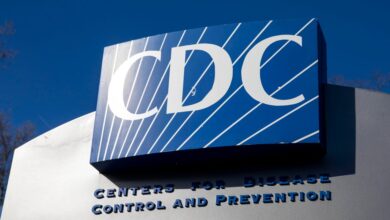Medicaid Is On The Menu As Republicans Seek Trump Budget Deal

Congressional Republicans are facing a daunting task of cutting federal spending by hundreds of billions annually in order to extend Trump’s 2017 tax cuts, introduce new tax breaks, and fund various White House spending priorities. This ambitious goal is to be achieved through a comprehensive bill that encompasses all these measures. However, the challenge lies in the fact that this cannot be accomplished without making significant cuts to one or more of the “big three” entitlement programs – Social Security, Medicare, or Medicaid, which collectively represent a significant portion of federal expenditure. Among these, Medicaid seems to be the likely target for cuts.
The stakes are high as Speaker Johnson aims to reach a budget deal by the end of May, with negotiations potentially extending into August or September when Congress must address the nation’s borrowing limit. Failure to do so could result in defaulting on the nation’s debts, damaging global confidence in the United States’ creditworthiness. On the other hand, implementing Trump’s proposed bill could have adverse effects on many voters, which is a risky strategy for members of Congress.
The current situation stems from Trump’s 2016 campaign promise to eliminate the federal debt in eight years, which was instead followed by significant tax cuts in 2017 that primarily benefited the wealthy, leading to a substantial increase in federal spending and adding trillions to the national debt over a decade. To avoid a repeat of this scenario, Congress is now faced with the challenge of finding a balanced approach to fiscal policy.
If an agreement is reached, the implications will be significant. Extending Trump’s tax cuts will result in substantial benefits for the top 1% of earners, while cuts to Medicaid and Medicare could disproportionately impact lower-income Americans who rely on these programs for essential healthcare services. The House of Representatives has already proposed significant cuts to mandatory spending, including Medicaid and Medicare, which could have far-reaching consequences.
One of the major concerns raised by former Trump advisor Steve Bannon is the potential political fallout of cutting Medicaid, which serves a significant portion of low-income Americans, children, and nursing home residents. Any cuts to Medicaid could lead to closures of healthcare facilities, particularly in rural areas, and result in increased healthcare costs and reduced access to care for many individuals.
Senate Budget Committee Chairman Lindsey Graham has emphasized the need for reforming Medicaid and Medicare to achieve cost savings. However, the root cause of high healthcare costs in the U.S. lies in the overall inefficiency and high spending in the healthcare system. Addressing these issues through strategies such as strengthening primary care, incentivizing cost-lowering technologies, and reigning in middlemen could lead to significant cost reductions and improved health outcomes for Americans.
In conclusion, rather than focusing solely on extending tax cuts, Congressional Republicans should prioritize measures that benefit a broader segment of the population and avoid detrimental cuts to essential programs like Medicaid. By addressing the underlying issues driving high healthcare costs, Congress can achieve long-term deficit reduction and improve the overall health and well-being of the American population.




